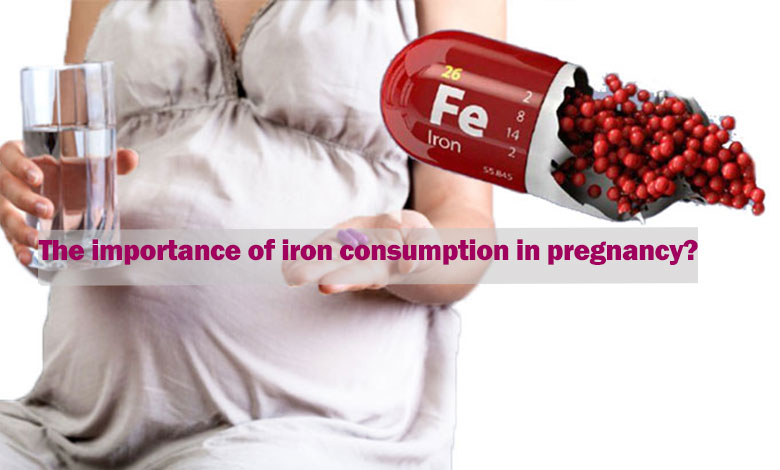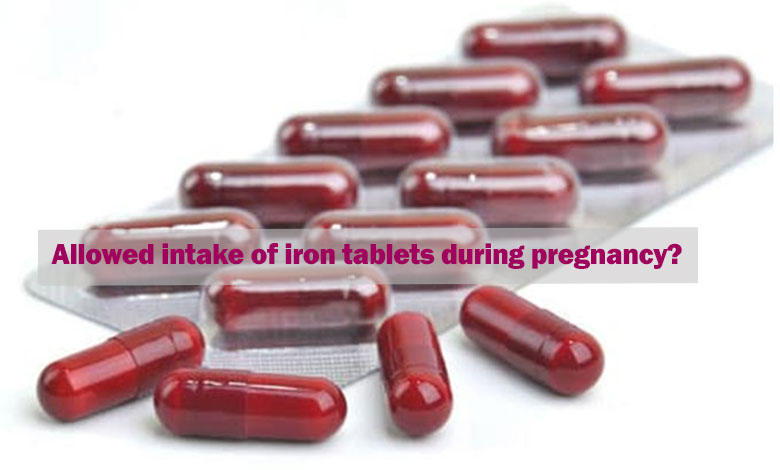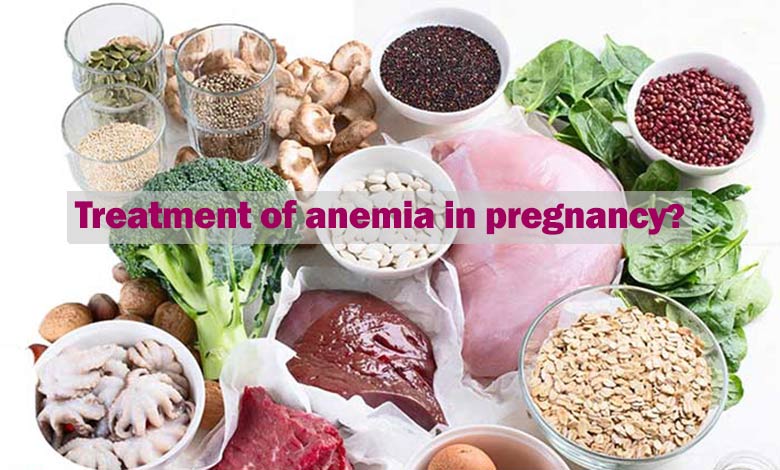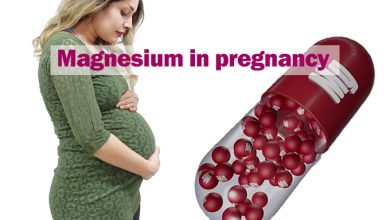The importance of iron consumption in pregnancy

All over the world, pregnant women are advised to pay attention to the proper intake of mineral iron. Lack of iron during pregnancy not only makes you feel weak and tired but may also cause risks.
As a young mother, you certainly want to give birth to your child as healthy and fresh as possible. Here we will explain everything you need to know about the necessity of taking iron tablets during pregnancy.
Related article: best prenatal vitamins
Iron consumption in pregnancy
The body uses iron to make hemoglobin; a Substance that carries oxygen throughout the body in red blood cells. During pregnancy, the body supplies blood and oxygen to the fetus, so the demand for iron increases during pregnancy. In fact, during this time, you need about twice as much iron as you would when you weren’t pregnant (27 mg per day).
In general, most women who have adequate iron stores, take prenatal vitamins, and eat a normal diet probably do not need iron supplements.
However, according to the American Pregnancy Association, about 15 to 25 percent of women in the United States develop iron deficiency, also known as anemia, during pregnancy. Anemia or severe iron deficiency is dangerous. At worst, it can cause premature birth, low birth weight, and infant and maternal mortality.
Anemia is a decrease in the concentration of hemoglobin. Although iron deficiency is the most common cause of anemia, infection, genetic factors, and many other conditions can also lead to anemia.
Iron deficiency in most cases causes a feeling of sluggishness, fatigue, dizziness, and lightheadedness. Therefore, unusual symptoms, including fatigue, that seriously interfere with the pregnant mother’s activities should be investigated.
Allowed intake of iron tablets during pregnancy:
The iron needed in pregnancy is provided through nutritional and iron supplements. There is little risk of getting too much iron during pregnancy, especially if the expectant mother’s blood iron levels are already low.

Therefore, just pay attention to your doctor’s recommendations for taking iron tablets during pregnancy. Increasing iron intake during pregnancy can cause constipation.
Constipation is a common symptom during pregnancy, however, due to the importance of iron intake during pregnancy, many iron supplements used during pregnancy contain stool softeners to prevent any problems.
Adding iron to your diet to prevent anemia in pregnancy
Every expectant mother is aware of the importance of iron intake during pregnancy. In order to prevent anemia during pregnancy, in addition to taking supplements, it is also necessary to increase the amount of iron received from the diet. However, not all iron-rich foods are created equal. There are two types of iron:
- Heme
- Non-heme iron
Nonheme iron is found primarily in legumes, green vegetables, nuts, eggs, whole grains, and iron-fortified products. Heme iron is obtained from animal sources such as red meat, fish, and chicken.
Interestingly, what you take with iron can affect how your body absorbs this mineral. Taking iron pills during pregnancy or eating iron-rich foods, along with calcium-containing foods such as milk or cheese, can actually reduce the body’s ability to absorb it.
On the other hand, consuming iron with an acid such as a glass of orange or tomato juice can increase its absorption and prevent iron deficiency in pregnancy. Eating vitamin C (ascorbic acid) along with iron significantly increases its absorption.
The importance of iron during pregnancy:
Your body uses iron to make extra blood (hemoglobin) for you and your baby during pregnancy. Among healthy humans, pregnant women and rapidly growing children are most vulnerable to iron deficiency. During pregnancy, iron is needed primarily to supply the developing fetus and placenta and to increase the mother’s red blood cell mass.
Iron deficiency is common among pregnant women in industrialized countries, as several studies show that hemoglobin concentrations in the second half of pregnancy are higher in women receiving iron supplements than in women receiving a placebo or no supplement.
Iron is essential for the production of hemoglobin, which carries oxygen from the lungs to the body’s tissues, and for the synthesis of iron enzymes, which are needed to use oxygen for cellular energy.
Getting enough iron can prevent a low level of red blood cells that can make you feel tired, called iron deficiency anemia. Having anemia can cause your baby to be born too small or too soon.
Anemia and iron deficiency after childbirth :
Even if a person develops anemia of pregnancy or iron deficiency during pregnancy, the anemia or iron deficiency is likely to resolve after delivery. Within six weeks of giving birth, iron levels in most women return to normal. But if the iron level is still low, the consumption of iron and iron tablets in the diet should be continued.
Treatment of anemia in pregnancy:
Eating iron-rich foods and getting extra iron as recommended by your doctor can help control iron levels and prevent iron deficiency during pregnancy. During pregnancy, you need at least 27 mg of iron per day. Get at least 9 milligrams of iron a day if you’re 19 or older while breastfeeding. Lactating mothers 18 years and younger need 10 mg of iron.

Treatment of anemia in pregnancy begins with low-dose iron supplements (30 mg per day). In most cases, this amount of iron is present in vitamins during pregnancy. In case of severe anemia, the dose may be increased.
Treatment of anemia in pregnancy does not end with iron tablets alone, and the type of drug prescribed and the method of drug administration can be different. So absolutely avoid self-medication in these cases.
